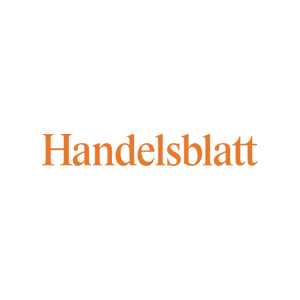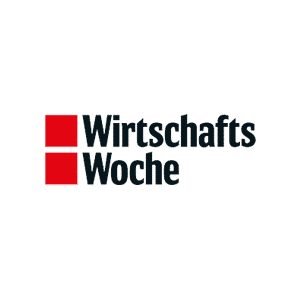Vacation travel ban in Germany
The vacation travel ban in Germany is regulated in the Holiday Travel Ordinance.According to this regulation, trucks with a gross vehicle weight of more than 7.5 tons and trucks with trailers for the commercial or paid transportation of goods, including associated empty runs, are not allowed to operate on Saturdays from July 1 to August 31 between 7 a.m. and 8 p.m. on some highways and federal roads.
| Highway | Route description |
| A 1 | from the Erfttal interchange via the Leverkusen-West interchange, Wuppertal, Kamener Kreuz, Münster to the Lohne/Dinklage junction |
| A 2 | from freeway junction Oberhausen to freeway junction Bad Oeynhausen |
| A 3 | from the Oberhausen interchange to the Köln-Ost interchange, from the Mönchhof interchange via the Frankfurter interchange to the Nürnberg interchange |
| A 5 | from Bad Homburger Kreuz to the Homberg (Ohm) junction, from Darmstädter Kreuz to the Karlsruhe-Süd junction and from the Offenburg junction to the Neuenburg interchange |
| A 6 | from the Schwetzingen-Hockenheim junction to the Nürnberg-Süd junction |
| A 7 | von Anschlussstelle Schleswig/Jagel bis Autobahndreieck Bordesholm, von Anschlussstelle Soltau-Süd bis Anschlussstelle Göttingen-Nord, von Autobahndreieck Schweinfurt/Werneck über Autobahnkreuz Biebelried, Autobahnkreuz Ulm/Elchingen und Autobahndreieck Allgäu bis zum Autobahnende Bundesgrenze Füssen |
| A 8 | from the Karlsruhe freeway interchange to the Munich-Obermenzing junction and from the Munich-Ramersdorf junction to the Bad Reichenhall junction |
| A 9/E 51 | Berliner Ring (Leipzig junction/Potsdam interchange) to Munich-Schwabing junction |
| A 10 | Berliner Ring, from freeway interchange Kreuz Oranienburg via freeway interchange Pankow to freeway interchange Barnim as well as from freeway interchange Werder to junction Berlin-Spandau |
| A 45 | from Dortmund-Süd junction via Westhofener Kreuz and Gambacher Kreuz to Seligenstädter Dreieck junction |
| A 61 | from freeway junction Meckenheim via freeway junction Koblenz to freeway junction Hockenheim |
| A 81 | from the Stuttgart-Zuffenhausen junction to the Gärtringen junction |
| A 92 | from the Munich-Feldmoching interchange to the Oberschleißheim junction and from the Neufahrn interchange to the Erding junction |
| A 93 | from freeway junction Inntal to junction Reischenhart |
| A 99 | from the Munich South-West interchange via the Munich-West interchange, Munich-Allach interchange, Munich-Feldmoching interchange, Munich-North interchange, Munich-East interchange, Munich-South interchange and Munich/Eschenried interchange |
| A 831 | from Stuttgart-Vaihingen junction to Stuttgart freeway intersection |
| A 980 | from freeway junction Allgäu to junction Waltenhofen |
| A 995 | from the Sauerlach junction to the Munich South interchange. |
The prohibition in paragraph 1 also applies to the following federal roads outside built-up areas in both directions of travel:
| Federal road | Route description |
| B 31 | from junction Stockach-Ost of the A 98
to junction Sigmarszell of the A 96 |
| B 96/E 251 | from the Berlin state border to the B 104 in Neubrandenburg. |
You can find more information here.
Looking for an overview of truck driving bans across Europe during the summer vacations? Click here!
Other important dates – overview of driving bans in the German states
In Germany, the ban on driving on Sundays and public holidays is regulated in Section 30 of the German Road Traffic Regulations (StVO). According to this, on Sundays and public holidays, trucks with a permissible total weight of more than 7.5 tons and trailers behind trucks are not allowed to drive on German roads between 0:00 a.m. and 10:00 p.m. for the commercial or paid transportation of goods, including associated empty runs.
Overview of holidays with driving ban for the year 2023
| DATE | HOLIDAY | WHERE DOES THE DRIVING BAN APPLY? |
| January 1, 2023 | New Year’s Day | all over Germany |
| April 7, 2023 | Good Friday | all over Germany |
| April 10, 2023 | Easter Monday | all over Germany |
| May 1, 2023 | Labor Day | all over Germany |
| May 18, 2023 | Ascension | all over Germany |
| May 29, 2023 | Whit Monday | all over Germany |
| June 08, 2023 | Corpus Christi | Only in the states of Baden-Württemberg, Bavaria, Hesse, North Rhine-Westphalia, Rhineland-Palatinate and Saarland.
There are exceptions for “transit journeys” through NRW in the state border area of Lower Saxony / North Rhine-Westphalia. |
| October 3, 2023 | Day of German Unity | all over Germany |
| October 31, 2023 | Reformation Day | Only in the federal states of Brandenburg, Bremen, Hamburg, Mecklenburg-Western Pomerania, Lower Saxony, Saxony, Saxony-Anhalt, Schleswig-Holstein and Thuringia. Some exemptions for journeys to and from Berlin can be found from the state of Berlin, the state of Brandenburg and a decree from the state of Lower Saxony. |
| November 1, 2023 | All Saints’ Day | Only in the federal states of Baden-Württemberg, Bavaria, North Rhine-Westphalia, Rhineland-Palatinate, Saarland.Here you can find the exceptions for “transit journeys” through NRW in the state border area: |
| December 25, 2023 | Christmas Day | all over Germany |
| December 26 2023 | Boxing day | all over Germany |
On the aforementioned non-federal holidays, the driving ban applies only in the federal states mentioned. In all other federal states you are not subject to the holiday driving ban for trucks.
Holidays 2023 without driving ban
On all holidays not mentioned here (Epiphany -January 6th-, International Women’s Day-March 8th-, Assumption -August 15th-, World Children’s Day-September 20th-, Day of Prayer and Repentance-) there is no holiday driving ban in Germany.
For the violations give the truck driving ban, various fines are imposed.
No uniform regulation
The truck driving bans can promote noise and environmental protection in places, relieve road congestion during the vacation season and support road safety. However, the inconsistent regulations lead to bureaucracy and additional costs for companies. Public holidays and even vacations vary from state to state. Exemptions are contentious, leading to additional special permits. A uniform regulation would bring benefits such as emission and cost savings, increased efficiency, improved break times for truck drivers and better conditions at rest areas and even reduction of traffic jams.
Various initiatives are calling for the abolition or at least standardization of driving bans in all German states. Currently, however, different bans still apply in each federal state.









